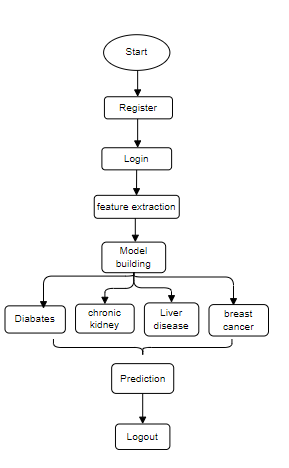Detection of Chronic Kidney Disease Using Deep Learning
Objective
The primary goal of this project is to classify the type of kidney disease that is detected using deep learning techniques.
Abstract
Globally, there is a substantial unmet need to diagnose various diseases effectively. The complexity of the different disease mechanisms and underlying symptoms of the patient population presents massive challenges to developing the early diagnosis tool and effective treatment. Machine Learning (ML) an area of Artificial Intelligence (AI), enables researchers, physicians, and patients to solve some of these issues. Based on relevant research, this review explains how Machine Learning (ML). Early detection and diagnosis of diseases such as diabetes, chronic kidney disease, liver disease, and breast cancer is crucial for improving patient outcomes and reducing healthcare costs. In recent years, machine learning has emerged as a promising tool for disease detection and diagnosis. In this project, we aim to develop a machine learning model for multiple disease detection, which can aid in early disease diagnosis and treatment. The proposed model will be trained on a large dataset of medical records, which includes patient demographics, medical history, symptoms, and diagnostic test results.
KEYWORDS: : Machine Learning, Decision tree, Adaboost , Xgboost and Catboost and ML techniques, evaluation.
NOTE: Without the concern of our team, please don't submit to the college. This Abstract varies based on student requirements.
Block Diagram

Specifications
SOFTWARE FRONT END REQUIREMENTS
H/W Configuration:
Operating system: Windows 7 or 7+
RAM: 8 GB
Hard disc or SSD: More than 500 GB
Processor: Intel 3rd generation or high or Ryzen with 8 GB Ram
S/W Configuration:
Software’s: Python 3.6 or high version
IDE: PyCharm.
Framework : Flask, pandas, numpy and Scikit-Learn



 Paper Publishing
Paper Publishing
